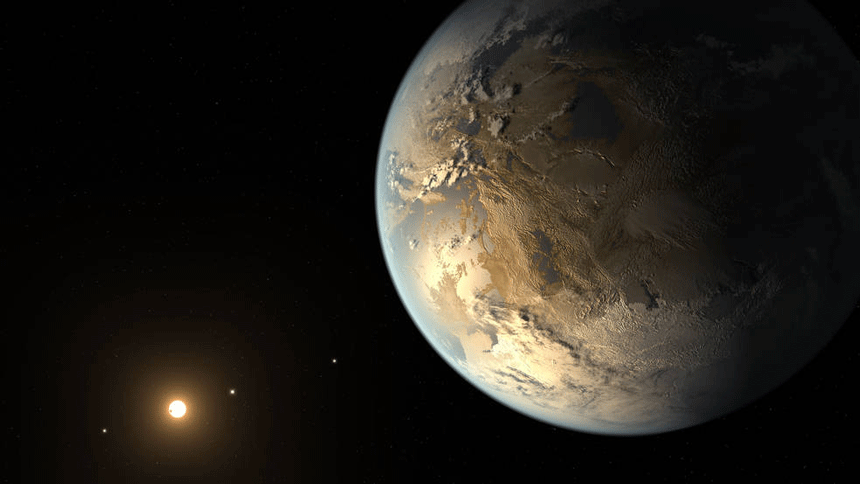Planets
-
 Planets
PlanetsScientists Say: Goldilocks zone
Not too hot, not too cold. Just right. This is the region around a star where water could be a liquid, instead of a solid or gas.
-
 Physics
PhysicsNew solar system found to have 7 Earth-size planets
A neighboring star system hosts seven Earth-like planets. Especially surprising: Three of those planets appear to reside in a zone that could support life as we know it.
-
 Planets
PlanetsCool Jobs: Probing Pluto
The New Horizons mission captivated the world as it flew by Pluto. Here are some of the people who made that possible.
By Ron Cowen -
 Planets
PlanetsScientists Say: Proxima b
A new planet outside our solar system is only 4.2 light years away.
-
 Planets
PlanetsA trail of cosmic dust may lead to alien life
Liquid water can be found even in the cold reaches of the outer solar system. Some hidden oceans may harbor warm oases cozy for living things.
By Douglas Fox -
 Planets
PlanetsSmash hit? Comet mission comes to an end
Rosetta’s 12-year mission to a comet has come to a bittersweet end. The orbiter turned off its cameras, settled down on its rocky home and entered a deep and lasting sleep.
-
 Space
SpaceSun’s nearest stellar neighbor may have Earth-like planet
A planet roughly the size of Earth orbits within the “Goldilocks” zone of the Proxima Centauri. Only 4.2 light-years away, this star is the one closest to our sun.
-
 Planets
PlanetsJupiter’s Great Red Spot is really, really hot
The Great Red Spot, a storm churning on Jupiter for at least 150 years, may be helping to keep the planet warm, a new study finds.
-
 Planets
PlanetsNew clues in search for Planet Nine
New details about Planet Nine, a hypothetical object on the edge of our solar system, might help scientists actually find it.
-
 Earth
EarthThat’s no moon: Earth’s tiny tagalong
A newly discovered asteroid appears to be orbiting Earth, like a new mini-moon. In fact, it’s really orbiting the sun.
-
 Planets
PlanetsBy Jove! Juno-cam sends back first postcard
After a long and quiet trek through space, the Juno spacecraft showed it weathered the trip fine and is ready to get on with its business: probing what makes Jupiter tick.
By Janet Raloff -
 Planets
PlanetsSuccess! The Juno spacecraft is now orbiting Jupiter
After nearly five years, the probe has safely reached its target. Juno will spend 20 months in orbit around the planet so that scientists can probe the many mysteries of this gas giant.